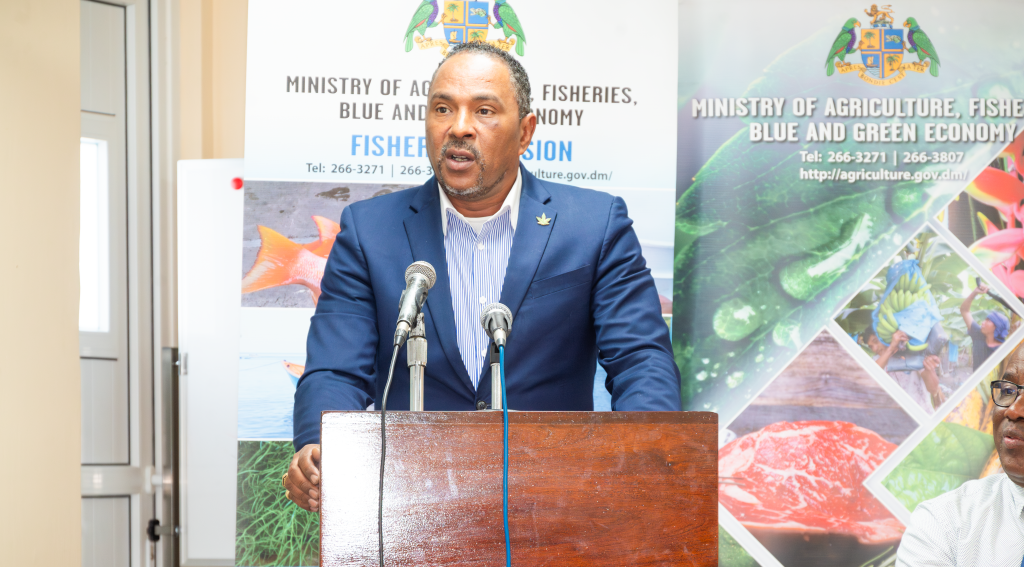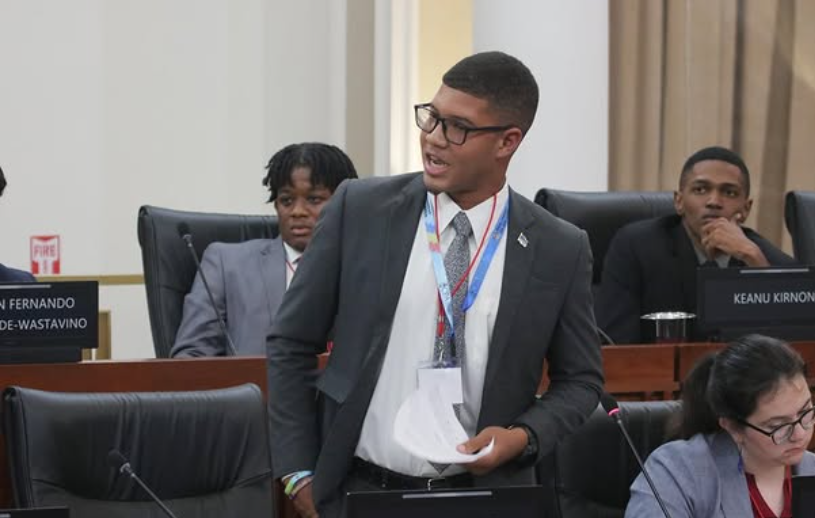

Dr James Fletcher, former minister responsible for sustainable development in Saint Lucia and the region’s current climate envoy, has issued an urgent call: stop building beachfront hotels. His appeal is driven by rising sea levels and the escalating climate crisis which he cites as existential threats to the island’s tourism industry.
The Caribbean Community (CARICOM) Climate Envoy stressed the need for climate-resilient, low-carbon tourism initiatives, urging stakeholders to rethink development strategies before irreversible damage is done.
Addressing members of the Saint Lucia Hotel and Tourism Association (SLHTA) and other tourism stakeholders, Dr Fletcher identified climate change, biodiversity loss, and economic instability as triple threats, stressing that coastal hotel developments are particularly at risk.
“I don’t know how much I can stress this: Stop building hotels on the beach,” he told an audience that included Minister of Tourism Dr Ernest Hilaire. “You are only putting your very important and very expensive investment in peril. It might feel good for the average visitor to come out of the room and curl their toes in the sand, but these will become very soon over-the-water suites if you do not pay attention to this.”
His appeal came as he pointed out that Saint Lucia’s tourism industry, like in so many other small island developing states, is vulnerable on many different fronts.
“Every single year for the last ten years has been one of the hottest years we have ever experienced on this planet,” Dr Fletcher said, pointing out that 2023 surpassed previous temperature highs and 2024 breached the critical 1.5°C warming threshold.
“Land and sea temperatures are hotter than they’ve ever been, so it’s not just the temperature on the land, but the temperature on the sea; the sea is also quite hot. The impact of sea level rising is being underestimated.”
Rising sea levels, he warned, threaten not only beachfront properties – causing property loss and higher insurance – but also groundwater sources, marine ecosystems and food security. Increased temperatures also mean higher electricity cost for hoteliers and property owners.
“Every single property now has to spend more money on cooling because the heat is just unbearable,” he said.
With stronger hurricanes, extreme flooding, and soaring airconditioning costs already impacting the sector, Fletcher called for a shift toward “regenerative” tourism – a model that goes beyond sustainability by actively restoring ecosystems and empowering local communities.
He recommended the sector pursue green transportation options such as electric vehicles, bicycle tours, walking tours and nature-based tours and invest in immersive cultural and ecological experiences.
The Caribbean Development Bank’s 2020 State of the Caribbean Climate report cites estimates that a single metre rise in sea level will lead to the loss of at least 16 multimillion-dollar tourism resorts across the Caribbean, with a replacement cost of over US$1.6 billion and the livelihoods of thousands of employees and communities affected.
Making reference to that report, Dr Fletcher warned: “So, all of these beautiful hotels that we have dotted along our coast in all of our countries are all at risk…. Some of the places where our properties and our prime tourism resorts are right now are really right in the path of that unrelenting water surge. So, really, the status quo is not good enough, which is why regenerative tourism is important.
“The tourism industry has long been criticised for its extractive nature. It has a big footprint—greenhouse gas emissions, water usage, coastal and marine impacts, solid waste and wastewater management, land use, conflict, biodiversity, stress…. You want to improve what you have around you because we recognise what you have around you is sick, it is being depleted,” the climate envoy said.
The SLTA event served as a rallying cry for the industry to adopt green infrastructure, renewable energy, and cultural preservation – ensuring tourism becomes “a force for good”.





